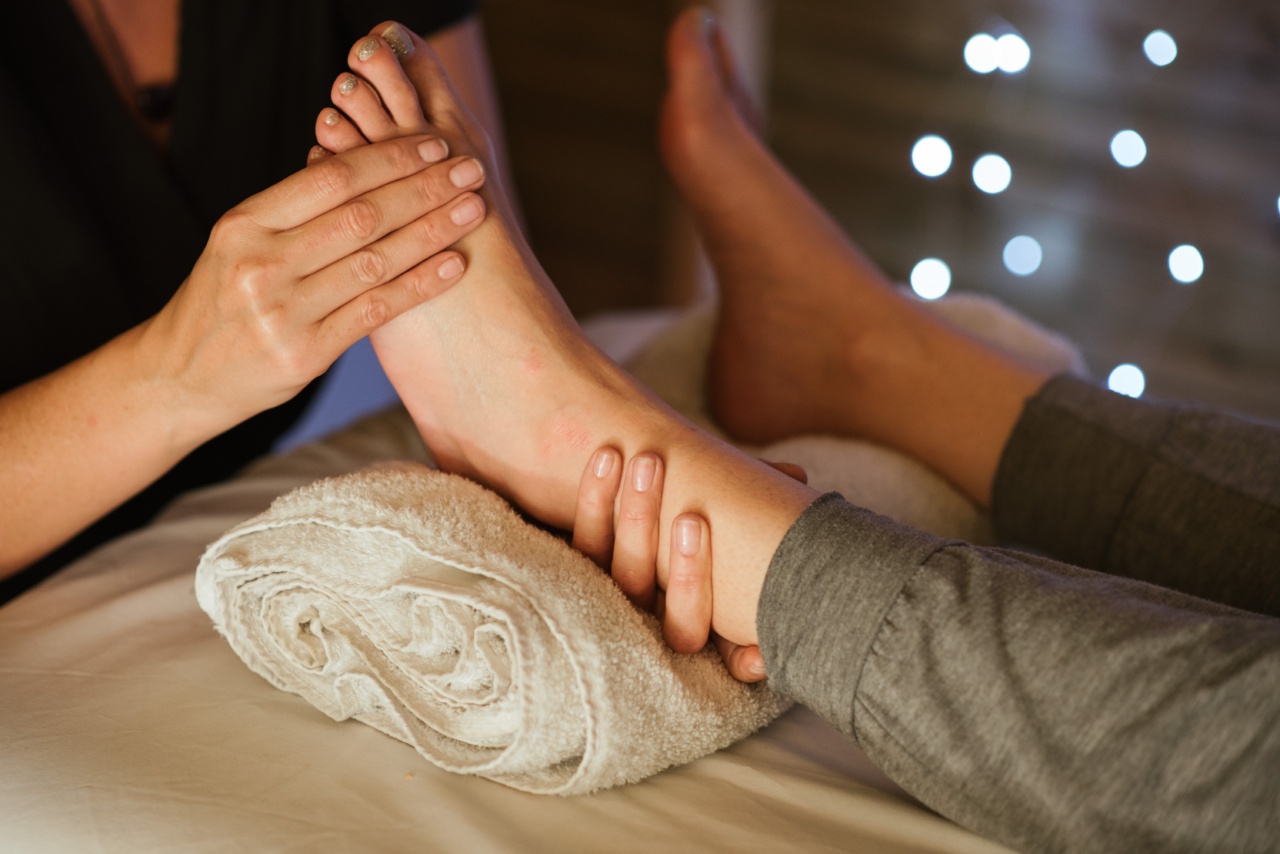Foot cramps can be an uncomfortable and painful experience, especially when they occur at night. The sudden tightening of the muscles in the feet can last for several seconds or even minutes, causing great discomfort and making it impossible to sleep.
Understanding the causes of nighttime foot cramps can help in preventing them, and there are several ways to tackle the issue if you have been affected. This article explores the causes, prevention, and treatment of nighttime foot cramps.
What Causes Nighttime Foot Cramps?
The exact cause of nighttime foot cramps is not fully understood, but there are several factors that may trigger the condition. These include:.
Poor Circulation
Poor circulation in the legs and feet is one of the most common causes of nighttime foot cramps. This may occur due to several factors such as obesity, smoking, or poor posture while sitting or standing for long periods.
When there is poor circulation, there is a reduced flow of oxygen and nutrients to the feet, which can lead to cramping.
Dehydration
Dehydration is another common cause of nighttime foot cramps. When the body lacks adequate fluids, there is an imbalance of electrolytes such as sodium, magnesium, and potassium, which can cause muscle cramps.
Poor Nutrition
If you have a poor diet that lacks essential vitamins and minerals such as magnesium, potassium, and calcium, you are at risk of developing nighttime foot cramps.
These nutrients play a significant role in muscle function, and a deficiency can cause muscle cramps.
Overuse of Muscles
Overuse of the muscles in the feet and legs, such as during exercise or standing for long periods, can cause fatigue and cramping. This is more common in individuals who are not used to intense physical activity.
Nerve Damage
Nerve damage in the legs and feet caused by injury or underlying conditions such as diabetes can also lead to cramping of the muscles in the feet. This can be more severe and require medical attention.
Preventing Foot Cramps
Prevention is better than cure, and there are several ways to prevent nighttime foot cramps. These include:.
Stretching and Exercise
Regular stretching and exercising of the legs and feet can help to improve blood circulation, strengthen muscles, and prevent cramping. You can try activities such as calf raises, ankle rotations, or yoga poses that target the feet and legs.
Stay Hydrated
Drinking plenty of water and other fluids can help to maintain electrolyte balance and prevent dehydration, which is a common cause of muscle cramps.
Improve Nutrition
A diet rich in essential vitamins and minerals such as magnesium, potassium, and calcium can help to prevent muscle cramps. Sources of these nutrients include leafy greens, dairy products, and nuts.
Proper Posture and Support
Proper posture while sitting or standing and using supportive shoes can help to reduce stress on the feet and improve blood circulation. You can use arch support, foot cushions or wear comfortable shoes to support the feet.
Treating Foot Cramps
If you experience foot cramps that cannot be prevented, there are several ways to treat them. These include:.
Stretching
Gently stretching the affected muscle can help to relieve cramps and pain. You can do a simple stretch by pulling the toes up towards the shin or standing on the affected leg and leaning forward, stretching the calf muscle.
Massage
Massaging the affected area can help to relieve tension and relax the muscle. You can use your hands or a foam roller to apply gentle pressure to the muscle.
Warm Compress
A warm compress applied to the affected area can help to increase blood flow and relax the muscle. You can use a hot water bottle or a warm towel as a compress.
Pain Relief Medication
If the cramps are severe, pain relief medication such as ibuprofen can be used to relieve pain and discomfort.
Conclusion
In conclusion, nighttime foot cramps can be a painful and uncomfortable experience, but they can be prevented and treated. Poor circulation, dehydration, poor nutrition, overuse of muscles, and nerve damage are some common causes of foot cramps.
Regular stretching and exercise, staying hydrated, and improving nutrition are some ways to prevent foot cramps. Stretching, massage, warm compress, and pain relief medication can be used to treat foot cramps.






























